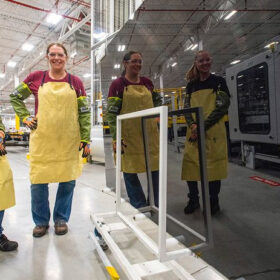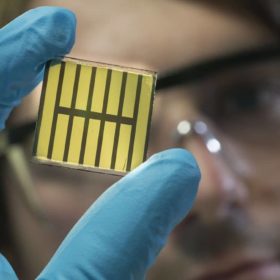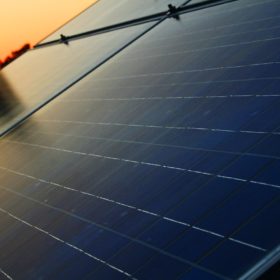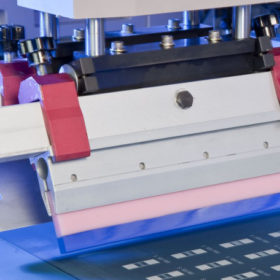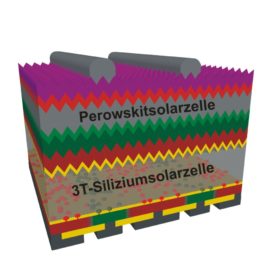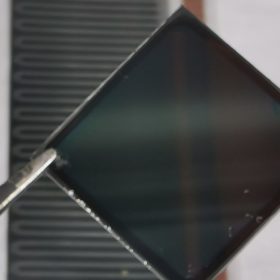Training AI to improve film quality in perovskite solar cells
With the aim of improving coating processes for large area thin films for high-performing perovskite solar cells, German and Swiss researchers have developed deep learning and explainable artificial intelligence (XAI) technology. The results suggest it can be used to define optimal coating process parameters more quickly and more accurately.
Weekend Read: The fruitful search for other thin films
First Solar and its cadmium telluride (CdTe) technology dominate thin-film solar in the mainstream market. Valerie Thompson looks at the US-based business and the future of thin-film PV technology.
Established thin film processing for 18%-efficient perovskite mini-modules
Scientists in Germany applied vapor-based deposition techniques and laser scribed interconnection – both well established processes in existing thin-film solar manufacturing – to fabricate perovskite mini modules. The group achieved a maximum efficiency of 18% for a device measuring 4cm². Relying on these processes, they say, could simplify processing and reduce losses associated with scaling up to commercial-sized devices.
Ramping up renewables now could save Europe €363bn by 2050
Delay, and policymakers will see the carbon emission allowance which would enable us to stay well below 2C frittered away so quickly net zero would have to be reached in 2040, rather than ten years later, when the relevant technology costs will be cheaper.
Slimming down on silver
Using an innovative high-speed video setup, scientists in Germany were able to observe the screen-printing process used in solar cell metallization, on a time scale of less than 50 milliseconds. Insights into the paste’s behavior and the mechanisms at work during screen printing will improve the process and the formulation of the silver paste it relies on.
German-led consortium aims for 33% efficient perovskite-silicon solar cell
The Institute for Solar Energy Research Hamelin (ISFH), the Karlsruhe Institute of Technology (KIT) and the Institute for Materials and Components in Electronics at the University of Hannover, as well as Centrotherm, Singulus, Meyer Burger and Von Ardenne are involved in a research project aimed at achieving a 27% conversion efficiency for silicon solar cells based on perovskite.
Perovskite structure also benefits batteries
Scientists at Germany’s Karlsruher Institute of Technology are leading an investigation into a new lithium-ion battery anode. The innovation has a perovskite crystalline structure and, according to the researchers, could provide strong all-round performance from simpler, cheaper production methods than those used for other anode materials.
Aerosols affect photovoltaic generation in Europe
The German meteorological service, the Karlsruhe Institute of Technology and solar forecaster Meteocontrol are investigating how weather events can be better factored in when forecasting solar power generation. The Federal Ministry of Economics is funding the ‘Permastrom’ research project with €2.5 million.
International consortium claims 25% efficiency for perovskite CIGS solar cell
Researchers led by Belgian institute imec claim to have achieved the result with a 1cm² perovskite tandem solar cell. The result tops the 24.6% efficiency the consortium announced in September 2018. The cell’s developers are now aiming for 30%.
A whole new KIT of solar cell materials
Scientists at Germany’s Karlsruhe Institute of Technology have received €4.5 million from the Carl Zeiss Foundation to begin a project developing an entirely new solar cell concept they say will combine the printability of organic PV, long-term stability of crystalline solar cells and ferroelectricity of lead-halide perovskites.

